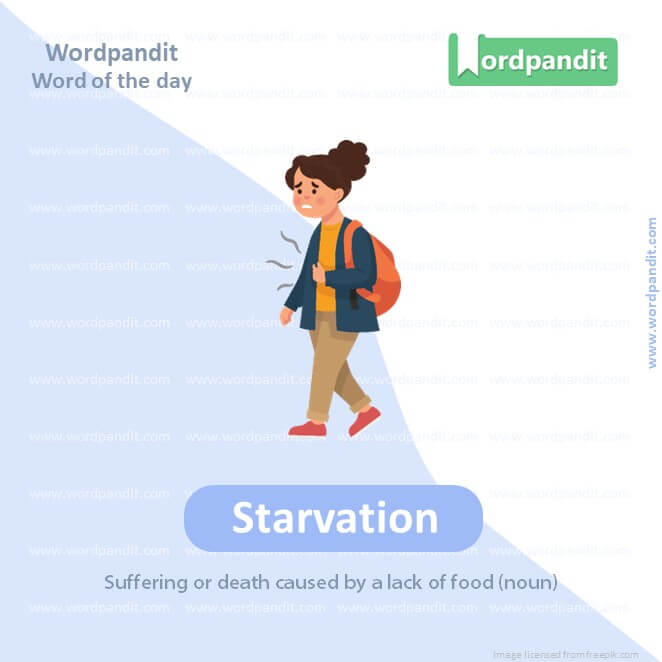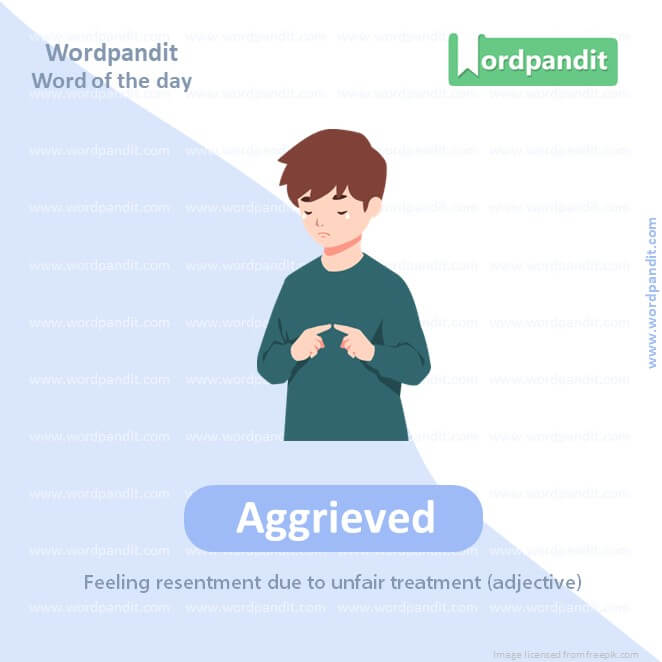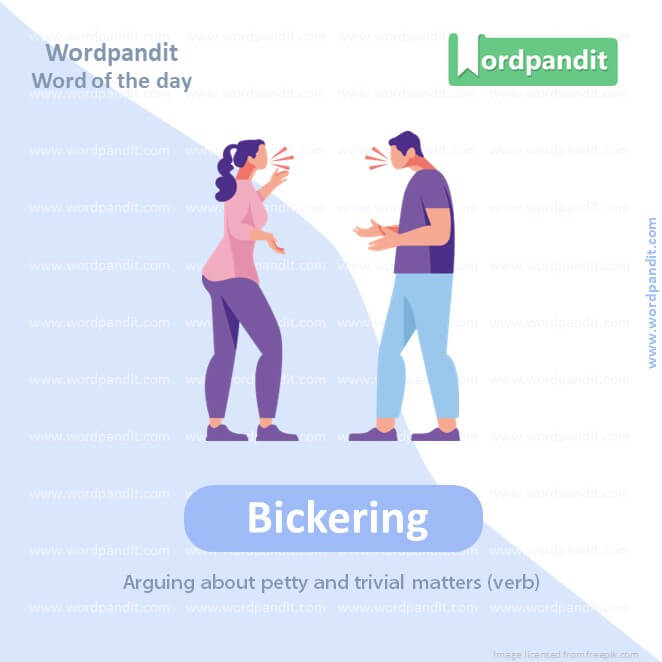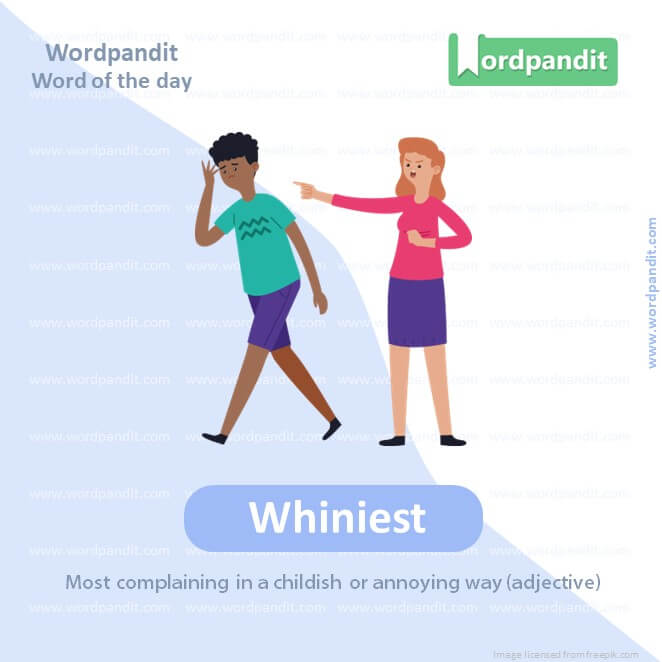Daily Vocabulary Words: List of Daily Used Words in Leading International Newspapers
Hi there. Welcome to this special section @ Wordpandit.
Our endeavour here is very simple: to highlight important daily vocabulary words, which you would come across in leading newspapers in the country. We have included the following newspapers in our selection:
• The New York Times
• The Washington Post
• Scientific American
• BBC
• The Guardian
• Psychology Today
• Wall Street Journal
• The Economist
We are putting in extensive work for developing your vocabulary. All you have got to do is be regular with this section and check out this post on a daily basis. This is your repository of words that are commonly used and essentially, we are posting a list of daily used words. Hence, this has significant practical application as it teaches you words that are used commonly in leading publications mentioned above.
Visit the website daily to learn words from leading international newspapers.

WORD-1: Starvation
CONTEXT: People are queuing for hours at bakeries. Soon, winter will arrive, and many could face starvation.
SOURCE: Al Jazeera
EXPLANATORY PARAGRAPH: Imagine not eating your lunch, dinner, and then no breakfast the next day; you’d be very, very hungry. That feeling is what “starvation” is. It’s when someone has no food for a long time and feels very weak.
MEANING: Suffering or death caused by a lack of food (noun).
PRONUNCIATION: stahr-VAY-shun
SYNONYMS: Hunger, famine, malnutrition, undernourishment, starvation
USAGE EXAMPLES:
1. The famine led to widespread starvation.
2. The lost hikers faced starvation in the woods.
3. Relief efforts were aimed at preventing starvation.
4. Starvation is a serious problem in the crisis area.

WORD-2: Aggrieved
CONTEXT: it is creating a new generation of aggrieved Palestinians who are likely to continue the cycle of violence.
SOURCE: The Guardian
EXPLANATORY PARAGRAPH: When someone takes your toy without asking, you might feel sad and upset. “Aggrieved” is when you feel this way because something unfair has happened.
MEANING: Feeling resentment due to unfair treatment (adjective).
PRONUNCIATION: uh-GREEVD
SYNONYMS: Wronged, offended, resentful, distressed, injured
USAGE EXAMPLES:
1. She felt aggrieved by the unfair decision.
2. The aggrieved party filed a complaint.
3. He was aggrieved by their lack of apology.
4. The aggrieved expression on her face was noticeable.

WORD-3: Renominating
CONTEXT: Before you completely resign yourselves to renominating a man about whose character and temperament you harbor misgivings.
SOURCE: The Guardian
EXPLANATORY PARAGRAPH: Think about when you choose the same person to be the leader of your game again. “Renominating” is like that. It means choosing someone for a position or award once more.
MEANING: Proposing someone for a position or honor again (verb).
PRONUNCIATION: ree-NOM-uh-nay-ting
SYNONYMS: Reelection, reappointment, proposing again, reselection, endorsing again
USAGE EXAMPLES:
1. The party is considering renominating the mayor.
2. He was renominated for the director’s position.
3. After her success, she was renominated as team captain.
4. The committee is renominating the previous year’s awardees.
WORD-4: Gouge
CONTEXT: the thought of doing it one more time makes me want to gouge my eyes out.
SOURCE: The Washington Post
EXPLANATORY PARAGRAPH: If you dig into your play-dough with a finger and make a big hole, that’s like “gouging.” It’s when you scoop or dig something out roughly.
MEANING: To make a hole or indentation in something with force (verb).
PRONUNCIATION: gowj
SYNONYMS: Scoop, hollow, excavate, chisel, dig
USAGE EXAMPLES:
1. He used a knife to gouge a hole in the wood.
2. The tool left a gouge in the surface.
3. The sculptor gouged out the eyes of the statue.
4. The accident caused a gouge in the car’s door.

WORD-5: Bickering
CONTEXT: The first two debates this year have sounded much the same, with at least seven candidates bickering among themselves.
SOURCE: The Guardian
EXPLANATORY PARAGRAPH: When you and your sibling argue back and forth over a toy, that’s “bickering.” It’s when people have a small argument or fight about something not very important.
MEANING: Arguing about petty and trivial matters (verb).
PRONUNCIATION: BIK-er-ing
SYNONYMS: Quarreling, arguing, squabbling, disputing, wrangling
USAGE EXAMPLES:
1. The children were bickering over who would go first.
2. There was constant bickering among the team members.
3. The bickering between the two friends was a daily occurrence.
4. To avoid bickering, they decided to take turns.

WORD-6: Whiniest
CONTEXT: DeSantis is one of the whiniest debaters I’ve ever heard, and Ramaswamy sounds like a sleazy preacher from the Church of Nihilism.
SOURCE: The Guardian
EXPLANATORY PARAGRAPH: Imagine someone complaining in a high-pitched voice because they didn’t get what they wanted – that’s being the “whiniest.” It means complaining a lot in an annoying way.
MEANING: Most complaining in a childish or annoying way (adjective).
PRONUNCIATION: WHY-ne-est
SYNONYMS: Most complaining, most fretful, most petulant, most peevish, most grumbling
USAGE EXAMPLES:
1. He was the whiniest when he didn’t get his way.
2. The whiniest child in the class always needed extra attention.
3. Of all the siblings, she was the whiniest.
4. The whiniest member of the group often caused delays.
WORD-7: Catapulted
CONTEXT: it catapulted the future president to political stardom.
SOURCE: The Washington Post
EXPLANATORY PARAGRAPH: Like a toy being thrown across the room really fast, “catapulted” means something being thrown forward or into a situation very quickly.
MEANING: To thrust or launch (something) in a particular direction quickly or suddenly (verb).
PRONUNCIATION: KAT-uh-pult-ed
SYNONYMS: Hurled, launched, flung, propelled, thrust
USAGE EXAMPLES:
1. The explosion catapulted debris across the street.
2. His invention catapulted him to fame.
3. She was catapulted into a new job.
4. The ball was catapulted into the air.
WORD-8: Totalitarianism
CONTEXT: the ultimate in individual freedom consistent with law and order — or down to the ant heap of totalitarianism.”
SOURCE: The Washington Post
EXPLANATORY PARAGRAPH: Imagine if one person made all the rules on the playground and no one else could say anything about it. “Totalitarianism” is like that for a country – when one person or group has total power and nobody else can make decisions.
MEANING: A system of government where there is no freedom and a single party or leader controls everything (noun).
PRONUNCIATION: toh-tal-ih-TAIR-ee-uh-niz-um
SYNONYMS: Dictatorship, autocracy, despotism, tyranny, absolutism
USAGE EXAMPLES:
1. The book described life under totalitarianism.
2. Totalitarianism doesn’t allow for free speech.
3. They fought against the rise of totalitarianism.
4. Historical examples of totalitarianism show the dangers of too much power.
WORD-9: Panoply
CONTEXT: he offers the similar panoply of pat conservative solutions that DeSantis proffers.
SOURCE: The Washington Post
EXPLANATORY PARAGRAPH: A “panoply” is a lot of something all together, like if you had every color of crayon, that’s a panoply of crayons – a big, impressive collection of them.
MEANING: A complete or impressive collection of things (noun).
PRONUNCIATION: PAN-uh-plee
SYNONYMS: Array, range, assortment, collection, display
USAGE EXAMPLES:
1. The museum had a panoply of artifacts on display.
2. She owned a panoply of books on the subject.
3. The parade featured a panoply of colorful floats.
4. His panoply of skills made him an asset to the team.
WORD-10: Reticent
CONTEXT: Ford was not so reticent and attacked Reagan mercilessly.
SOURCE: The Washington Post
EXPLANATORY PARAGRAPH: When you don’t want to talk about your day at school, you’re being “reticent.” It means you’re not really wanting to share your thoughts or feelings.
MEANING: Not revealing one’s thoughts or feelings readily (adjective).
PRONUNCIATION: RET-uh-sunt
SYNONYMS: Reserved, withdrawn, introverted, restrained, taciturn
USAGE EXAMPLES:
1. She was reticent about her feelings.
2. The reticent student rarely participated in discussions.
3. His reticent nature made him a man of few words.
4. Despite our questions, he remained reticent.
vocabulary journey
In the realm of language learning, one unparalleled method has been consistently proven to provide tremendous value – engaging with vocabulary journal words. This practice is a brilliant tool that provides a platform for the gradual introduction of new words, phrases, and their nuances.
But how exactly should we approach learning vocabulary journal words?
Originally, vocabulary journal words are a collection of new words you encounter that are challenging and unfamiliar. On stumbling upon such words, take the first step by writing them down in your journal. But simply recording them isn’t enough. The real strength of vocabulary journal words lies in understanding and using them in context. Draft sentences using these words, as this practical usage not only enhances retention but also familiarizes you with their applicability.
Expanding your vision beyond memorization, indulge in understanding the background of these vocabulary journal words. Dive into the etymology of the words, learn their origins, and uncover the different meanings they’ve held over time. This nugget of information often aids in deeper understanding and long-term retention of words.
Your engagement with vocabulary journal words should not be reserved for solitary learning. Discuss these words in conversation with friends, family, or language mentors. This encourages active usage and, silently but surely, integrates them into your everyday language.
Another enchanting side to vocabulary journal words is the potential for creativity. Create small stories or visuals connected to the words, leading your brain to create multiple neural connections to the meaning of the word – a powerful strategy for enhancing retention.
In essence, vocabulary journal words offer a multifaceted, immersive learning process that goes beyond just enhancing your word-list. They open doors to the dynamic world of language and its contexts, training your mind to appreciate, understand, and effectively communicate with an enriched vocabulary. Consider vocabulary journal words not as a task but as your secret allies on your beautiful journey through language learning.









